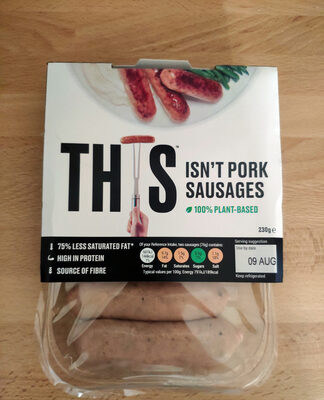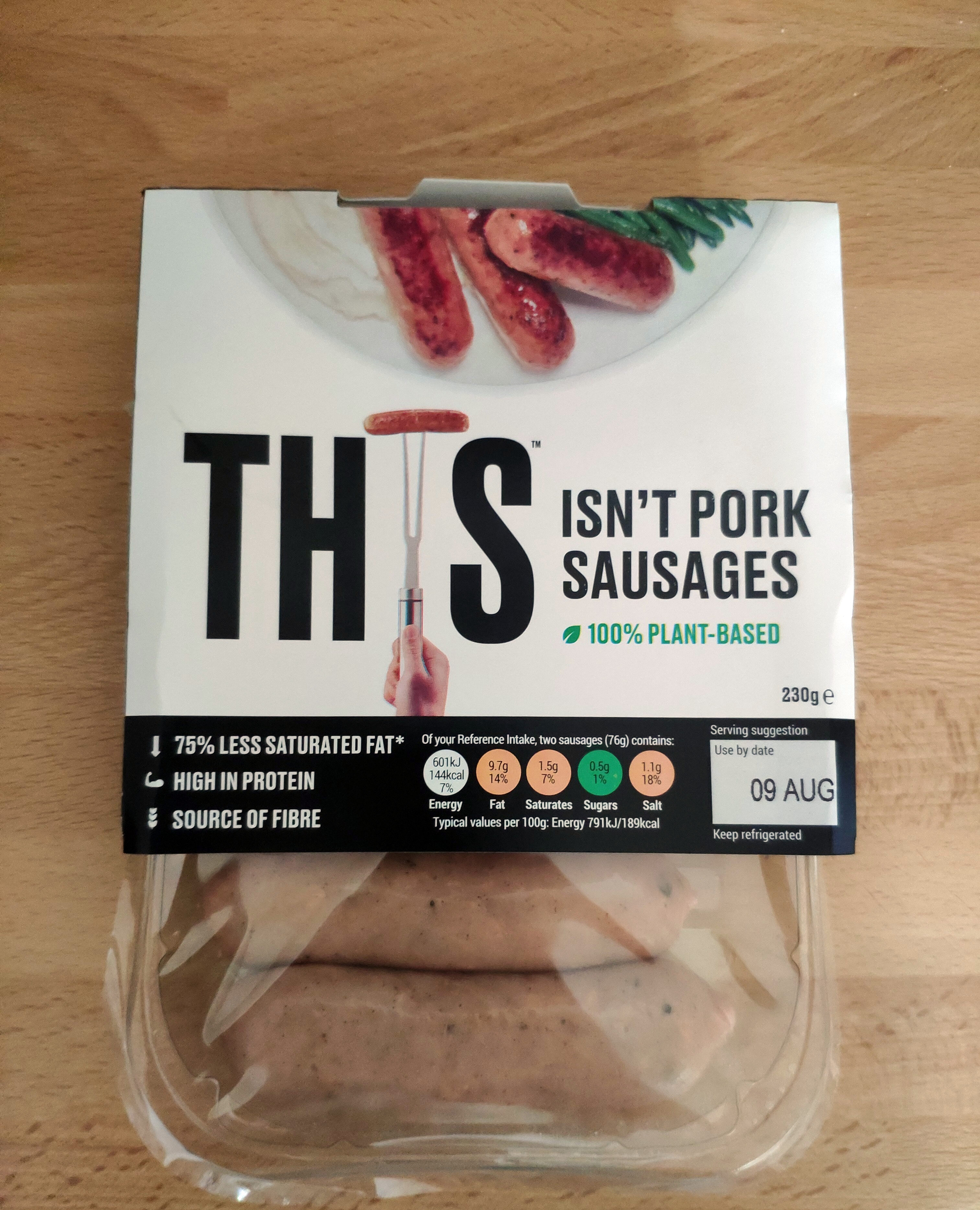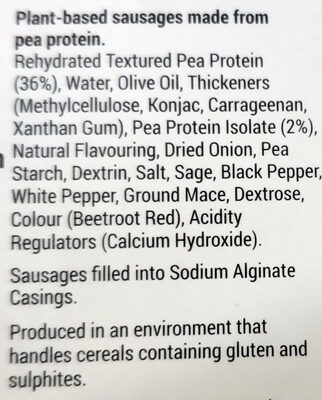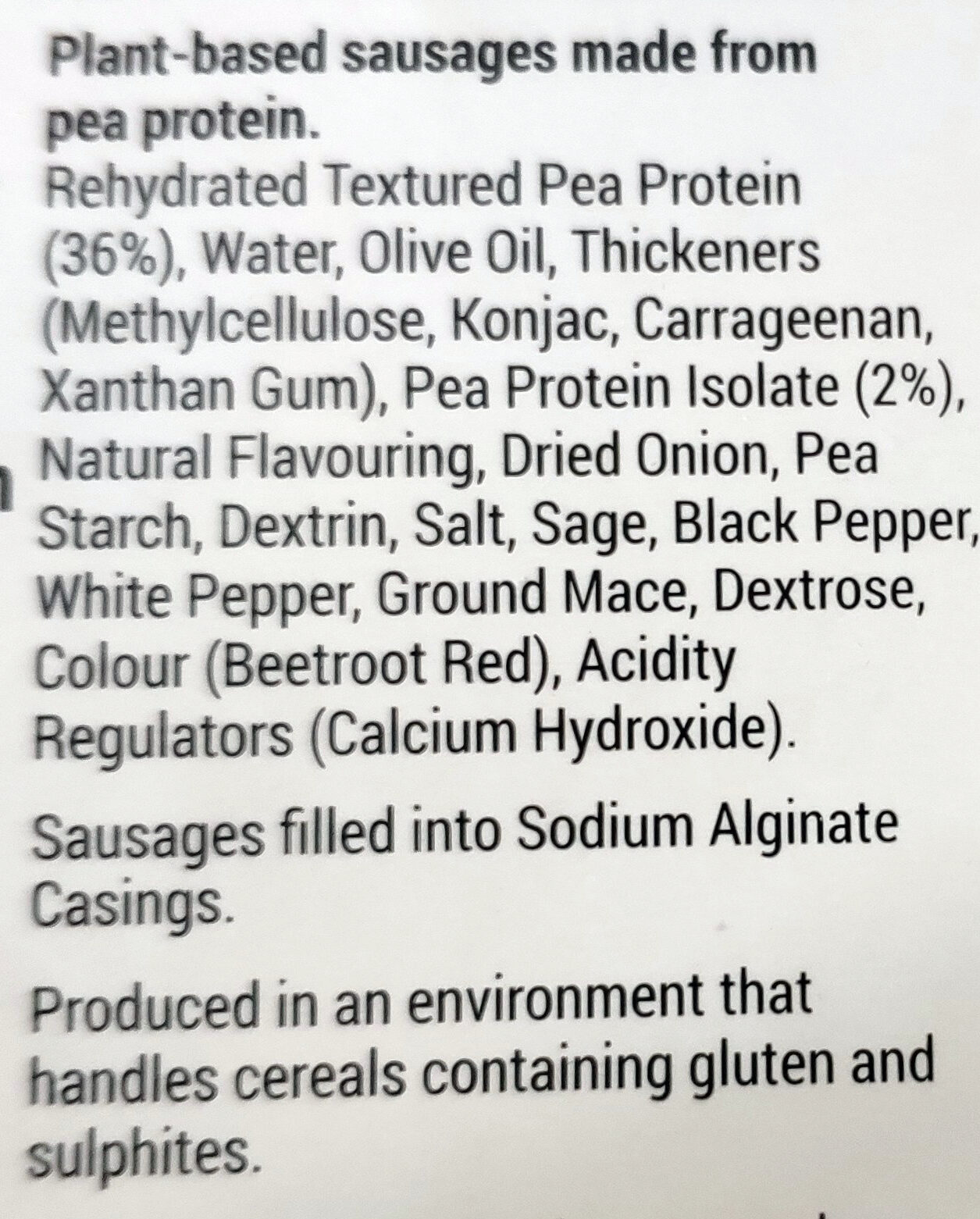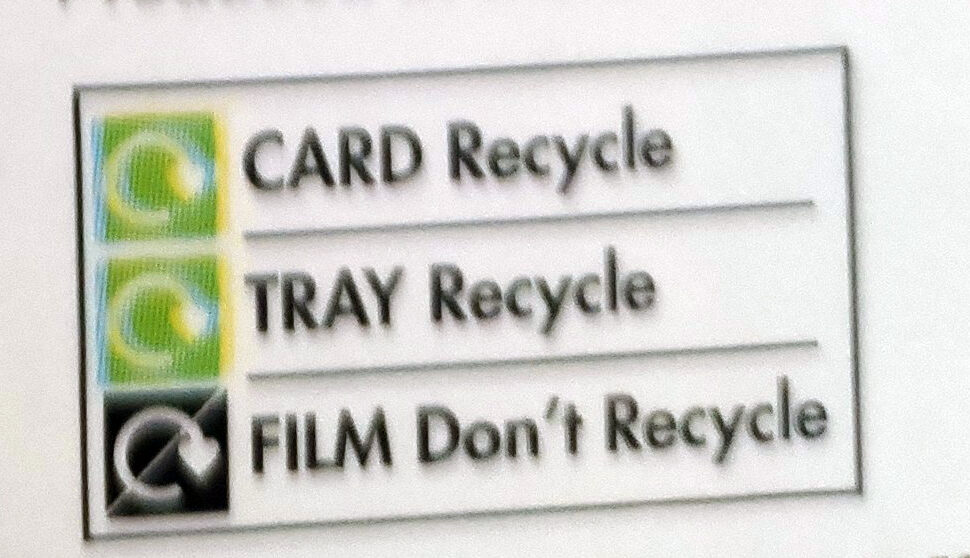This Isn't Pork Sausages - 230g
This product page is not complete. You can help to complete it by editing it and adding more data from the photos we have, or by taking more photos using the app for Android or iPhone/iPad. Thank you!
×
Barcode: 5060678710262 (EAN / EAN-13)
Common name: Plant-based sausages made from pea protein
Quantity: 230g
Packaging: 1 cardboard sleeve to recycle 1 plastic tray to recycle 1 plastic film don't Recycle
Brands: THIS
Categories: Plant-based foods and beverages, Plant-based foods, Meat alternatives, Meat analogues, Vegetarian sausages
Labels, certifications, awards: Vegetarian, Source of fibre, Source of proteins, Vegan, High proteins
Link to the product page on the official site of the producer: https://this.co/products/large-sausages/...
Stores: Tesco, Asda, Morrisons, Sainsbury’s, Waitrose, Ocado, The Vegan Kind
Countries where sold: United Kingdom
Matching with your preferences
Report a problem
Data sources
Product added on by kiliweb
Last edit of product page on by baileysloan.
Product page also edited by alia, openfoodfacts-contributors, yuka.sY2b0xO6T85zoF3NwEKvlhxdTPqA-zniJi7vwV2t3o7Qd6f3PtIq-KHEGao, yuka.sY2b0xO6T85zoF3NwEKvlkF_c4bMiy3GNyHnuGmh2sq0NJnjXO5t0rCmD6s.
